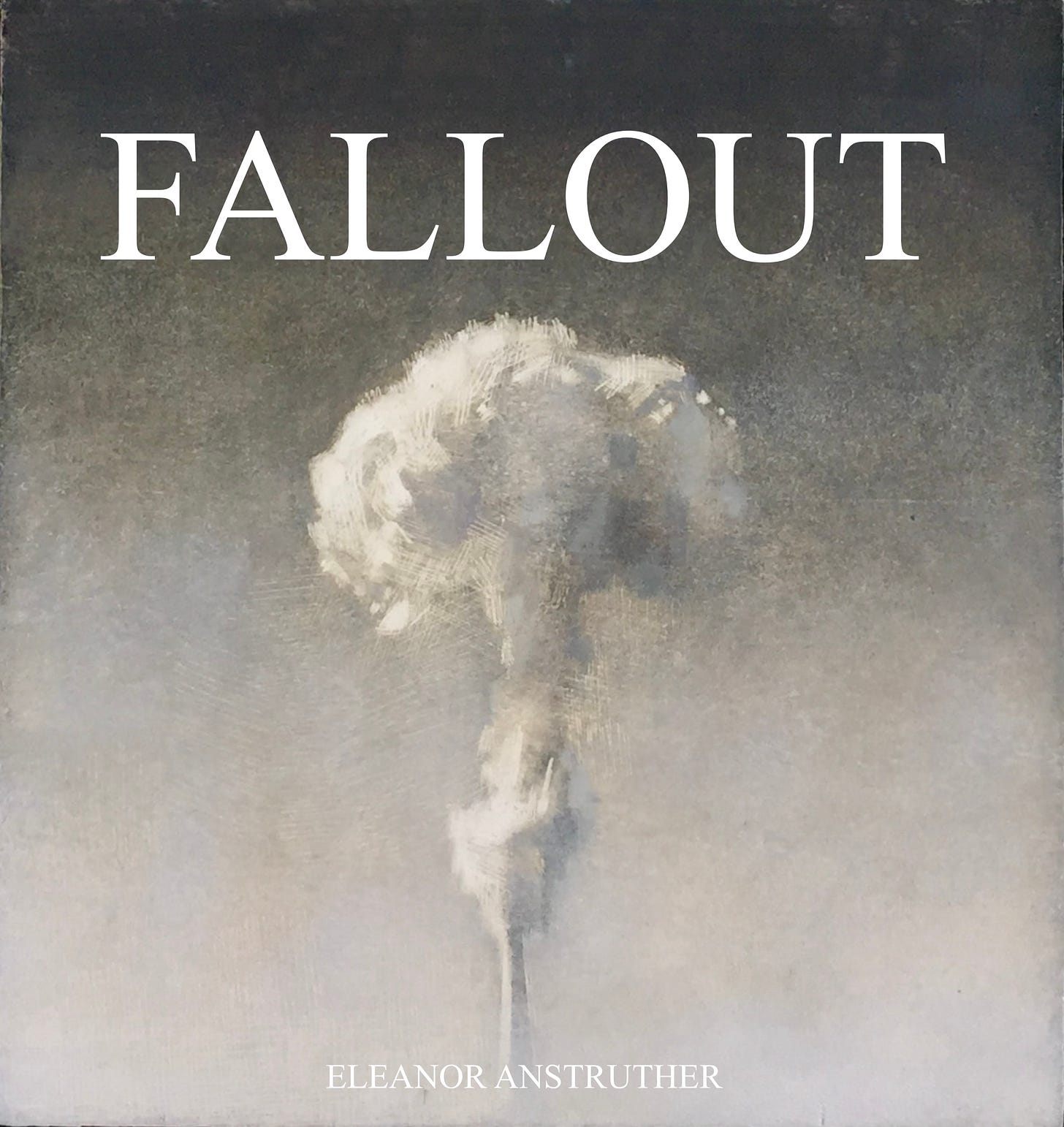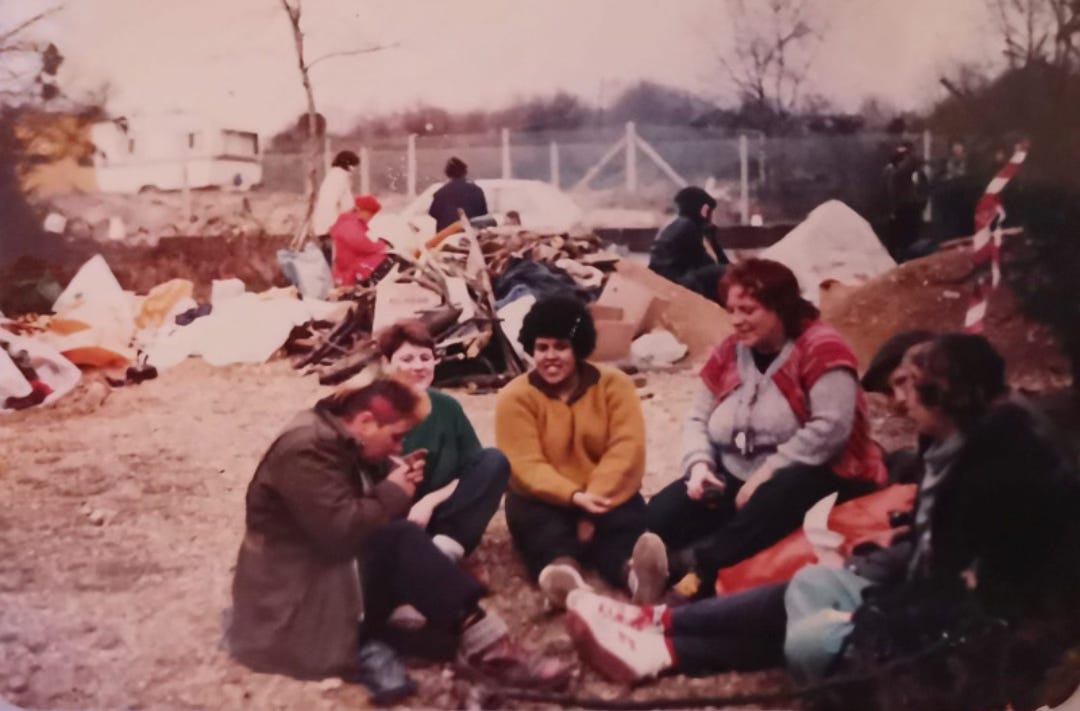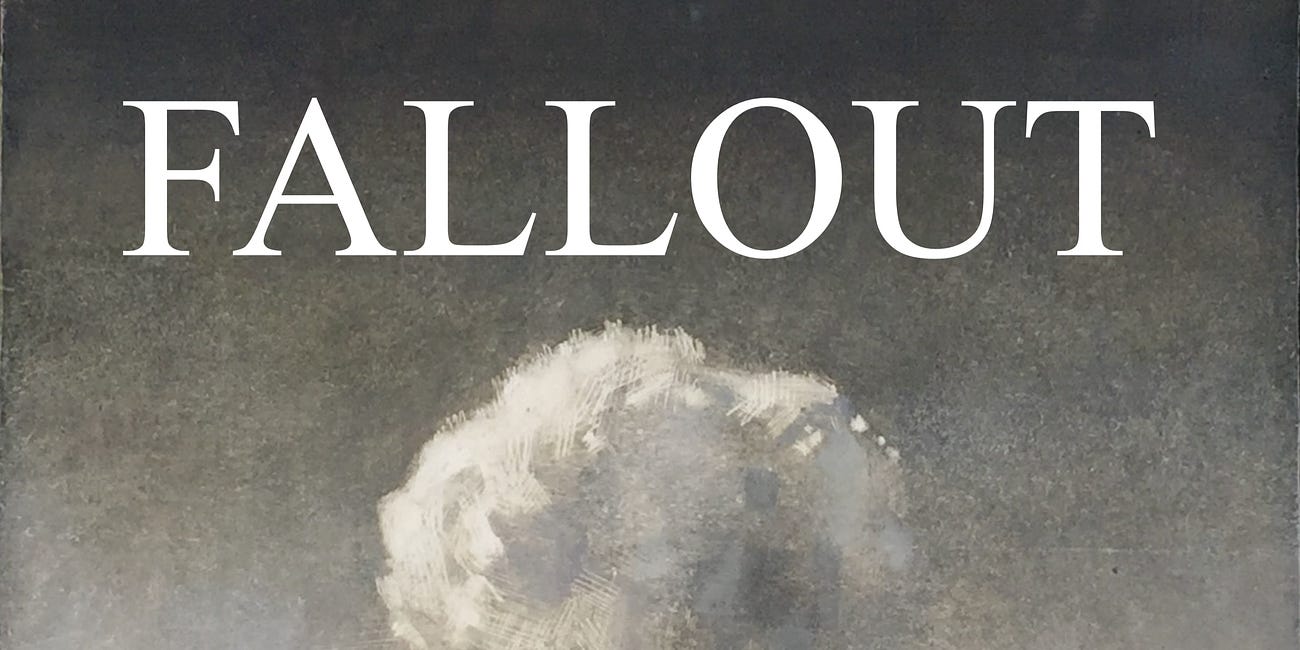Annabel Jenkins was searching for Bridget. She’d lost her within minutes of getting off the bus and was feeling slightly frantic. She’d seen her go off with Kate and Peggy while she was putting their names down in the arrivals tent. She wasn’t surprised the girls had been drawn to the fence like that, that they’d forgotten her saying to make sure they were counted, she’d been the same when she’d first come to the peace camp. It was as if the violence of that chain link couldn’t be true, as if it had to be touched to be believed.
She’d seen it first in the snow nearly a year ago, it had reminded her of Edmund meeting the Queen in, The Lion, The Witch and The Wardrobe, when he can’t resist the Turkish Delight, the scene of the snow and Mr Tumnus hiding somewhere in those icy woods and the fence like the lamppost, mesmerising in its unreality.
Annabel Jenkins lived alone. She didn’t have a cat, though everyone assumed she must. She had two small white mice called Reepicheep and Prince Caspian that she let crawl all over her and nuzzle into her hair. She let them lie on her chest and nibble the buttons of her shirt while she ate her Birds Eye ready meal in front of Cagney & Lacey. She knew what the other teachers at St Biddulph’s thought about her. They felt sorry for her. They thought she lived alone because she had no choice.
For the first few hours of losing Bridget she didn’t worry. It was fantastic, they were there all day, she’d find her later. She filled in their names and emerged into the drizzle and couldn’t see them and walked off along the fence, going into the crowd, walking against the wave with the fence on her left. When she was a schoolgirl the assistant teacher at Bible Studies class had said, If you walk against the crowd, you can see their faces, and that’s what she did. She was like that in life and she did it now in literal act, these thousands of beautiful faces that she weaved amongst, walking the fence, singing to herself, and joining the songs of others. For ages she stopped with a group who had crowded up to a bunch of squaddies and belted out, Chant Greenham down until the squaddies ambled away as if the scene was everyday normal, as if it meant nothing to any of them.
By lunchtime she thought she’d better start looking properly, Kate would be leaving in a few hours more, Bridget could be anywhere around this nine-mile perimeter. She retraced her steps to Yellow gate and walked on as far as Green, stopping there with her friends for a warming cup of herbal tea. She thought about going on further, but word was that the police had arrived so she washed up her cup and set off for where they’d begun, where she’d last seen Bridget, where the busses and coaches and cars were parked, strung out along the road, causing a nuisance. There she found lines of police looking bored and no Bridget. She stood by the fire and made herself useful stirring a vat of vegetable stew that someone had brought in the back of their car, that they’d hauled out and hauled onto a rickety grate that looked certain to collapse any minute. The songs and the smoke and the thousands of women gathering; it was too magnificent to fret. Bridget would reappear. She wasn’t stupid. She knew she couldn’t stay. In this camp that made warriors of them, Bridget would be safe. She’d find her again. She’d have to remember to thank Janet for letting her come. She hadn’t thought Bridget’s mum had it in her.
A young Black woman in a yellow jumper, a green stripe sprayed into her hair, held out a bowl for Annabel to fill. It hadn’t gone unnoticed by Annabel that this camp was mostly white, almost completely, and that this Black woman with a green stripe sprayed into her hair was the only Black woman she’d seen all day. Rightly or wrongly, Annabel felt a kinship as she took the woman’s bowl, filled it with stew and handed it back. The young Black woman stood out in this peace camp of white like Annabel stood out in the staffroom; the ranks of identikit Lady Diana’s if they were young, the matronly if they were past forty, Annabel was neither of these.
From the moment Prince Charles had set his sights on the woman-child nursery school teacher in her sensible skirts, from the day the press had snapped her coy smile, the entire female body at St Biddulph’s had let their fringes flop sideways and their shirts rise into neck high frills and their looks slant upward in glances as if they too were going to marry a Prince, those, anyway, young enough to think it within their grasp; as if the mere fact of also being a teacher gave them some sort of upward trajectory. The older female teachers went about with the same tired middle parting and tied at the nape arrangement they’d had since they were young, the grey showing through, the lines becoming taut around their eyes. None of them looked like Annabel whose translucent skin and thin red wisps made her constantly appear on the brink of disappearing.
Not that she wanted to look like them; as a translucent red-haired child she’d fancied herself some sort of saint, only half a smile out of the catacombs, but a mist had come down over her as she’d gone from child to adult, a mist lifted briefly by a term at Goldsmiths which had settled into a difference that had made sex impossible, so far at least. Not that she wanted to have sex with any of the female teachers at St Biddulph’s, but it would have been nice to have been fancied, catch even the slightest tremor in a look or a smile that said theirs was a disguise, too. But no. The entire contingent, Lady Di’s or matrons, kept their eyes on the balding, thin, angular, young, muscular, aging, fat men who made up the male teaching body while Annabel hardly existed; a ghost in the art room, a silent figure in the staff room, a phantom in the dinner hall trying to make the children behave.
The Black woman with the green stripe in her hair ate quickly and went off with her empty bowl to wash it and came back to the fire. “Shall I take over?”
Annabel handed her the ladle but didn’t move, her face alight with the heat, her back cold against the day.







My favorite bit was about the teachers' trying to be "identikit" Diana's, and how that made non-Diana, Annabel Jenkins feel a kinship of otherness with the only black woman she saw. A really effective way of describing Annabel, both physically and how she sees herself. (I'm studying you, Eleanor!).
So well-written. And the story has been so hidden; I find that alarming, as if it didn't matter?